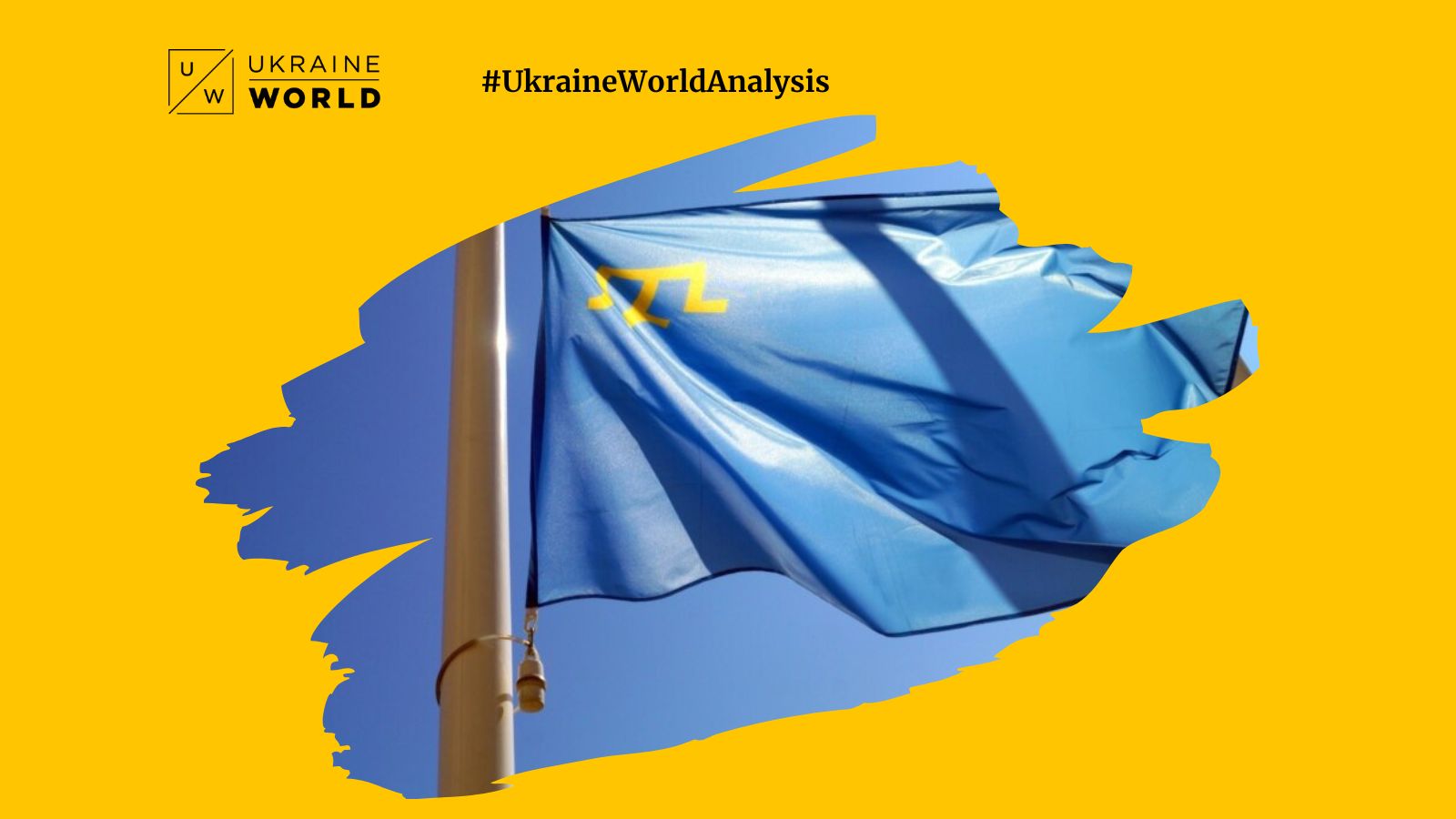UkraineWorld spoke to Alim Aliyev, Deputy General Director at the Ukrainian Institute.
Key points - in our brief, #UkraineWorldAnalysis:
1. On Crimean political prisoners
- The last 9 years of Russia's war against Ukraine have been characterized by the taking of political prisoners. In the territories it occupied, Russia threw people with pro-Ukrainian positions behind bars and continues to do so in the newly occupied territories. Some Crimean political prisoners are in the pre-trial detention center in Simferopol, while others have been deported to different parts of Russia. In addition to the problem of prisoners' access to their lawyers and families, political prisoners also lack access to medical care. For example, political prisoner Iryna Danylovych was deprived of medical care when she fell ill.
- Over the past year, 247 cases were opened by the Russian occupiers against residents of Crimea under the so-called law on "discrimination against the Russian Armed Forces". It has been used against people publicizing anti-war slogans, singing or listening to Ukrainian songs, and using the Ukrainian flag, as well as teachers in schools who have called Russia's war aggression against Ukraine. Bohdan Ziza, an artist who painted the doors of the occupation administration in Yevpatoria with yellow and blue paint, was kidnapped and tortured, and is now accused of treason.
2. On Russia's neocolonial aspirations
- Russia is again colonizing the Crimean peninsula, a process with several dimensions. The Russo-Ukrainian war is anti-colonial and existential. The non-recognition of Ukrainians as a separate nation is a consistent and prominent thread in the speeches of Russian propagandists.
- The first dimension of colonization is identity. Russia has banned the Mejlis, the main political body of the Crimean Tatars. In 2021, the leaders of the Mejlis were either arrested or exiled. The first deputy of the Mejlis, Nariman Dzhelialov, the most powerful voice of the Crimean Tatar people, was also imprisoned for 17 years for his participation in the Crimean Platform, summit on returing Crimea to Ukraine. After the Russian occupation of Crimea, only 3% of children can learn the Crimean Tatar language, and there are no Ukrainian schools left at all.
- The Russians brought in weapons, soldiers, and reactivated military units to militarize the peninsula. Around a thousand missiles have been launched from Crimea. The Russians have turned Crimea into a platform for their aggression.
- There is also a so-called covert mobilization, which is a war crime. According to international law, an occupying country cannot conscript people from occupied territories into the army. Over the past six months, about 20,000 Crimean Tatars have left Crimea to avoid being mobilized by the Russian Armed Forces, as the Russians planned to force Crimean Tatars in Ukraine and those still living on the peninsula to fight against each other.
- Russia has promoted settler colonization: over the past 9 years, approximately 70,000 people have left Crimea, while Russia has brought about 700,000 Russians to the peninsula. Russia is working for a third time to transform Crimea's demographics: before the first annexation of Crimea in the 18th century, 95% of the population of the Crimean peninsula were Crimean Tatars, but this share has now decreased to 13%. The deportation of 1944 and today's efforts are processes of Russian colonization.
3. On Russians who are in Crimea illegally
- For authoritarian regimes like Russia, alternative points of view are a threat. Russia brought in their military, the Federal Security Service, occupation administrators, businessmen, and pensioners. Russians who came to Crimea after 2014 are, by Ukrainian law, illegally residing on Ukrainian territory.
4. On the clash of identity
- In contrast to the strong Crimean Tatar and Ukrainian identities, Russia created a fake narrative called the Crimean people: a people who do not remember their history or traditions. Some people are afraid of detention and torture and have begun to self-censor themselves. But people in Crimea are carrying out underground educational, cultural, human rights, and media initiatives in order to preserve their identities and free thinking. After the occupation, for example, the Crimean Solidarity initiative of journalists, lawyers, and families of political prisoners was founded. Russia accuses many of them of terrorism and subversion. Crimea has turned into a peninsula of resistance in the last year of the full-scale invasion.
- Russia has created fake organizations that aim to replace Ukrainian and Crimean Tatar ones. They began to publish a Ukrainian-language newspaper and created an organization of Crimean Tatars, which was joined by collaborators.
DARIA SYNHAIEVSKA, ANALYST AND JOURNALIST AT UKRAINEWORLD
Alim Aliyev, Deputy General Director at the Ukrainian Institute
This material was prepared with financial support from the International Renaissance Foundation.

